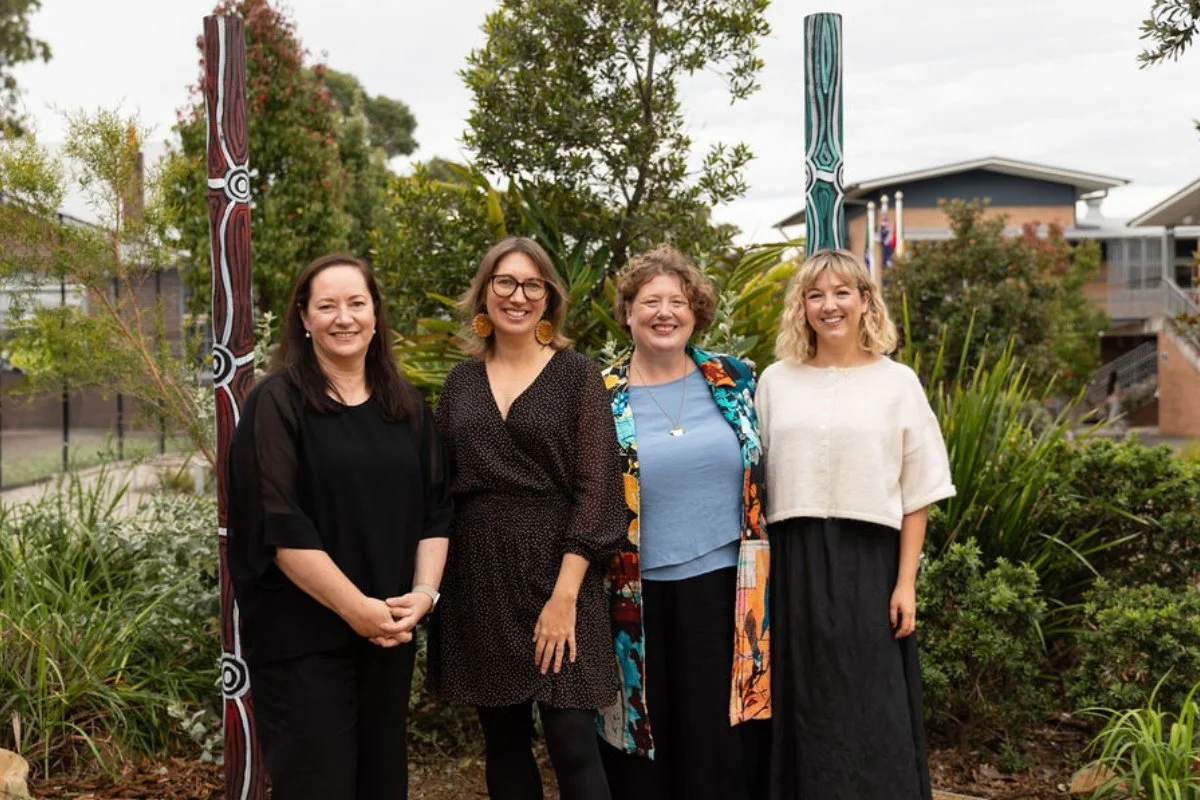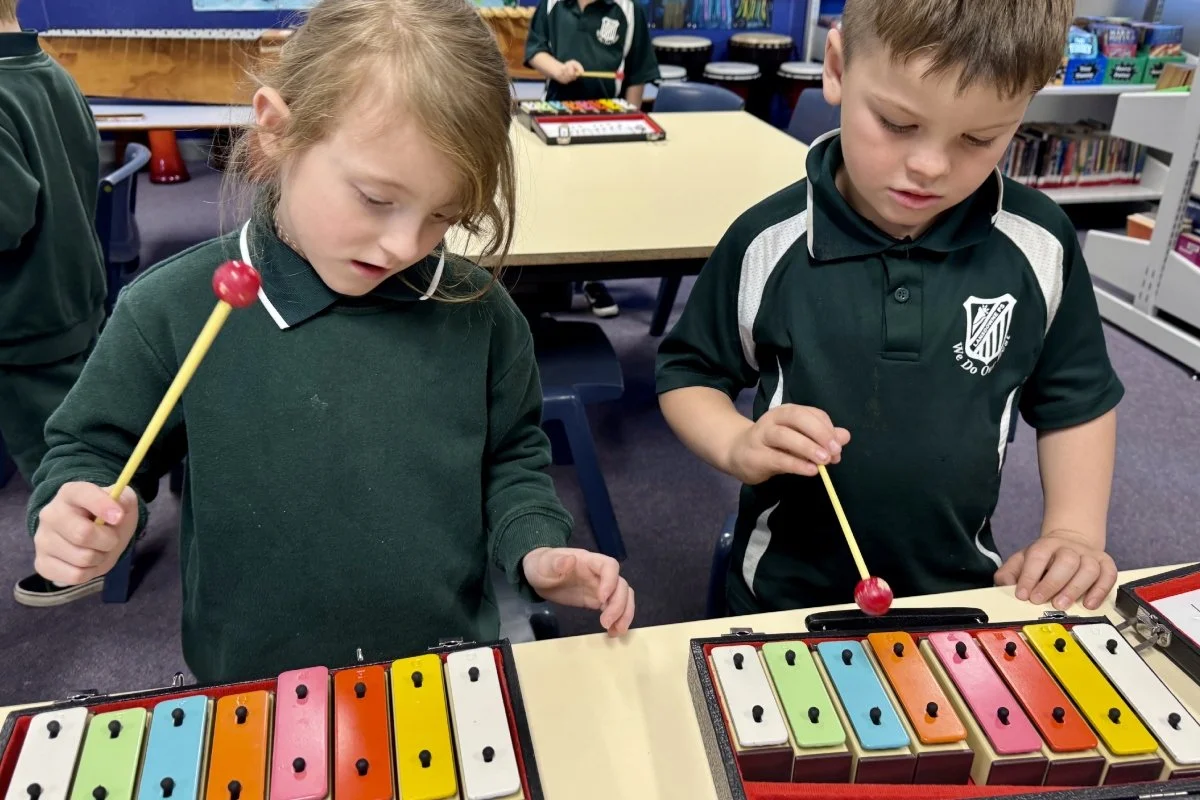National Radio News spotlights new research on gaps in music education
Emily Albert, Executive Director at Alberts and Head of Music Education: Right from the Start, recently spoke with Shannon Kirkwood on National Radio News about critical gaps revealed in our latest research on music education delivery in NSW primary schools.
“This survey gives us valuable insights into the reality teachers face in classrooms, showing how limited training impacts confidence and restricts students’ access to quality, ongoing music learning,” said Emily of the release of our ACER Primary Teachers’ Survey on Music Education in NSW.
Conducted by the Australian Council for Educational Research (ACER), the survey gathered responses from 706 teachers across a representative sample of 95 NSW government primary schools, revealing widespread challenges to achieving greater access, equity, and quality in music education for NSW students.
“There are pockets of real leadership across the state, but then there are schools where we don't have hardly any music education, which raises a real equity issue,” Emily told Shannon. “Often, those students who would benefit most are the least likely to receive it.”
Despite 77% of teachers citing music as important or very important to students’ educational experience, only 32% of respondents report teaching music regularly, while 73% preferred using pre-recorded music lessons over leading their own.
Emily notes a key barrier is their limited training and professional development, which creates a lack of confidence that restricts students’ opportunities to engage in consistent, quality music learning: “We found, of the teachers who responded, 82% felt their university degrees didn’t prepare them to teach music up to year 6 in the curriculum, and only a quarter have completed any additional music training since their degrees.” This is despite professional learning opportunities being available to teachers, signalling an opportunity for more targeted support and training initiatives.
“So, this is really impacting their confidence and knowledge, with many teachers preferring to use a pre-recorded music session rather than leading one themselves.”
Commissioned by Music Education: Right from the Start in partnership with the NSW Department of Education and NSW Teachers Federation, and funded by the NSW Government through Sound NSW and Alberts | The Tony Foundation, the survey provides the state’s first baseline data of its kind, aiming to inform policy and program development.
Highlighting the broad impact of quality, sequential, and ongoing music education, Emily pointed out its role in addressing many educational challenges schools face today. “Music really has a role to play across the board – from literacy and numeracy, to social and emotional wellbeing and student engagement,” she told Shannon. “It’s a great opportunity if we can lift teachers’ skills and equip them to bring music confidently into the classroom.”
Looking ahead, “I think it’s definitely a situation that we can overcome. Teachers understand the value [of music education]; they want to be able to teach it,” said Emily. “It’s about looking at how we bridge that skill gap, how we utilise the excellent practice that does exist. We want every teacher to have music in their toolbox.”
Emily also highlighted the positive momentum in NSW, noting the Government’s commitment to a 10-year Music Education Plan, a result of the Parliamentary Inquiry into Arts and Music Education and Training. “NSW is in a great position, having recently completed the Inquiry and this research, which show where there is great practice and where opportunities lie,” she said.
”There’s strong commitment from many stakeholders, and that bodes well for the future of music education in the state.”
(Image: Liz Keene Photography)







